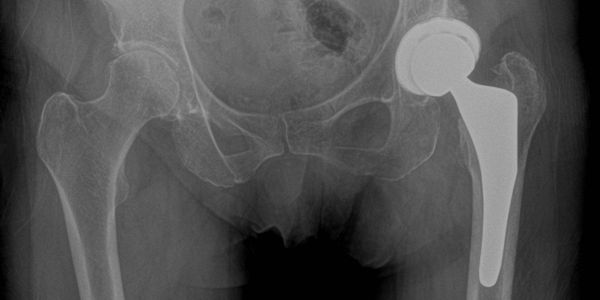Information on this Web page is for educational use only, and is not intended as medical advice.
Every attempt has been made for accuracy, but none is guaranteed. If you have any serious health concerns, you should always check with your health care practitioner before treating yourself or others. Always consult a physician before beginning or changing any fitness program.
Recently a woman who is an accomplished martial artist asked me for advice on regaining her strength and flexibility after surgery she plans to have soon. The surgery is for double hip replacement. Her hips were destroyed by the methods of stretching and teaching how to kick that are common in the martial arts, such as those methods taught by Bill Wallace (both hips replaced) and Chuck Norris (one hip replaced). I gave her my thoughts and info on preparing for the surgery and on rehab. My advice applies to any kind of orthopedic surgery, not just to hip replacement. Here is what I wrote:
Most injuries, certainly the chronic ones as well as many of the sudden ones, are end results of muscular dysfunctions that through a chain of compensations culminate in the most vulnerable body part. So you need to realize that the damaged body part is at the end of a chain of compensations for a dysfunction elsewhere, sometimes quite far from the place of your symptoms. Examples: lower back pain due to poor head position; upper back or shoulder pain due to a foot injury; hip joint damage due to imbalance of thigh muscle activity.
Now that the damage to your joints is so severe as to require surgery, you need to realize something else: A surgeon is not going to correct the cause of your joints’ damage—but only fix the damage itself. So the surgeon will remove damaged cartilage, or remove bone spurs, or put in artificial joint surfaces, but will do nothing about the muscle imbalance that caused you to need the surgery. The surgeon also will do nothing about the secondary imbalances caused by the damage to your joints. (When your joints hurt you use your muscles differently than when your joints are normal, and if this lasts, the abnormal pattern of muscle use becomes so ingrained it may not go away on its own after the surgery.)
So to ensure regaining normal function after surgery you must do three things:
1. Choose your surgeon well—find the best available specialist on the joints you need operated. A lot of things can go wrong in the operating room, so check references. Ask how well this surgeon’s patients function after the operation. Are they doing their sports? Did they need other operations later on (for example, after a knee replacement a hip joint replacement)? This is a bad sign.
2. Prepare for the surgery—the surgeon will tell you that you need a certain level of strength and mobility prior to the operation to increase your chances of a good outcome. But you need to do more. Prior to the surgery you need to find and fix muscular imbalances—those that caused your joints’ damage and those that resulted from your joints’ damage. If you don’t do it, the post-surgery rehabilitation will be an uphill struggle, and you might not regain normal function. The specialist who will work on correcting those imbalances will tell you when you are ready for the surgery. I recommend you seek the help of someone certified in Muscle Activation Techniques (MAT) and Active Release Techniques (ART) or at least one of those.
3. Do rehabilitation after surgery with the same people who prepared you for the surgery. Some physical therapists are certified in MAT and ART, some even know applied kinesiology, but a sports chiropractor with either ART or MAT certification seems like the best choice. You can learn more about Active Release Techniques at www.activerelease.com and about Muscle Activation Techniques at www.muscleactivation.com.
I close with a list of questions a prospective patient should ask the surgeon:
- What is the diagnosis, and can I recover my full strength and flexibility without an operation?
- Do you have experience with this type of injury?
- If not, do you know a surgeon who has such experience, and can you help request an emergency second opinion?
- When should this be operated on?
- How long before it is too late?
- What should I do or shouldn’t do before the operation?
- How long is the planned hospital stay after the operation?







